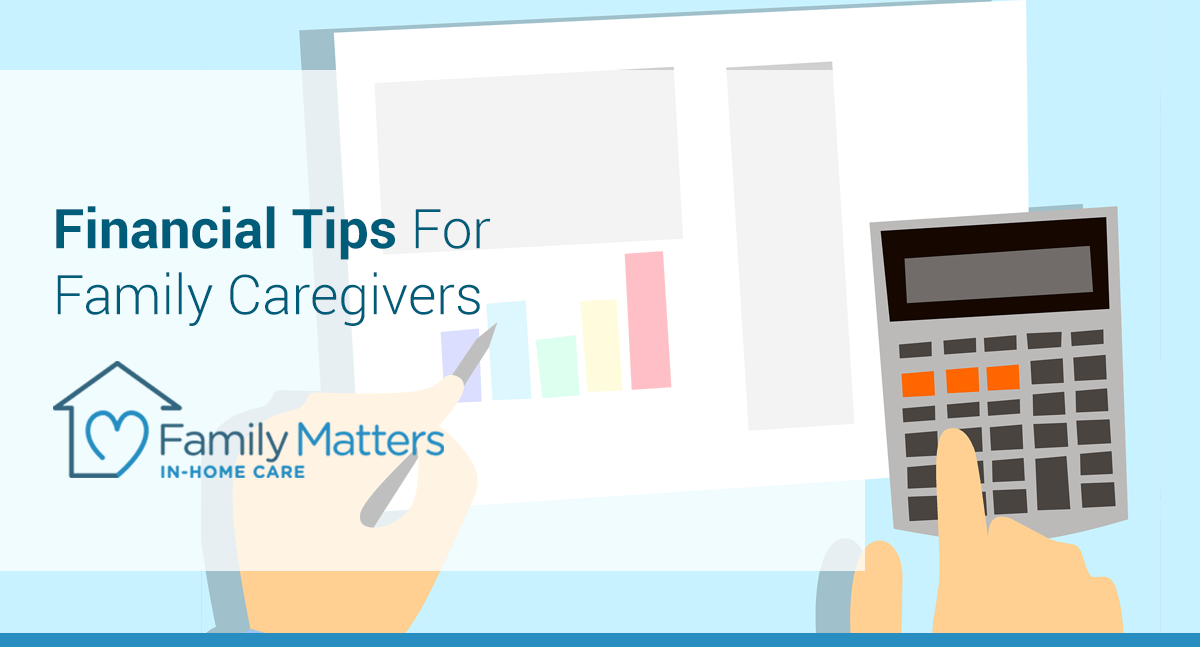
Financial Tips For Family Caregivers
According to AARP, more than 42 million American adults, mostly women, provide unpaid care to an aging parent or relative. Family caregivers often become so focused on managing their loved one’s health and financial needs that they forget to plan for their own future needs. Here are some important financial tips for family caregivers.
Discuss plans in advance
If possible, discuss finances with your loved one early on. Do they have enough money set aside for their healthcare costs? How will you access their finances or make financial decisions if there is a crisis situation? Although it can be difficult, talking about finances with an aging loved one while they are still healthy will help reduce stress for everyone down the road.
Create a budget
Create a household budget for you and your loved one, especially if your caregiving duties are taking time away from an earned income. Look for ways to eliminate debt and cut expenses, even if it is just a small amount each month or each week. Also, remember to budget for expenses associated with caregiving. AARP estimates that family caregivers spend an average of $5,500 per year of their own money to help care for their loved one.
Research benefits
Research programs that might pay you for being a caregiver. Some states provide benefits that help pay for senior caregivers, even if they are family members. Contact your local Medicaid or Aging Services Department to see if there are benefits available in your area. Additionally, you may want to research other public benefits that can help cover costs for your loved one’s care such as veteran’s benefits, Medicare and Medicaid.
Prioritize your retirement savings
Even if you have to cut back on work, do your best to hold on to your retirement savings and if possible, continue to save. Many family caregivers end up withdrawing loans from retirement accounts to help cover expenses and supplement income, but the penalties are usually not worth the money. Unless it is a last resort, leave your own retirement savings alone.
Continue working if possible
While caregiving can easily become a full-time task, many experts recommend that people continue working if they can. Before leaving your job, check with your employer to see if you might be able to reduce your hours or work part-time. Some employers have benefits that include a flexible schedule or taking days off to care for a family member. You might also consider hiring an in-home caregiver to help care for your loved one during the day so you can continue working.
Plan for your own future care needs
Chances are you will eventually need long-term care for yourself, and because the cost of long-term care can add up quickly, it’s important to plan ahead. Look into purchasing a long-term care insurance policy to help cover the cost of your future care. Make sure you have a medical power of attorney, a will, and someone that you can trust who can access all your account information in case you become suddenly incapacitated.
Above all, as a family caregiver, remember to take care of yourself and get help when you need it. It’s important that you are healthy, happy, and financially stable in order to provide the best care possible for your loved one.
If you or your family member is considering in-home care as part of a plan to age in place, contact Family Matters In-Home Care today for a free consultation. Our team is dedicated to supporting your family and helping older adults enjoy life in the comfort of their own home for as long as possible.
Some of the services offered by Family Matter In-Home Care include: Alzheimer’s & Dementia Care, Bed & Wheelchair Transfer Assistance, Companionship, Housekeeping & Meal Preparation, Personal Care, Recovery Care, and Transportation.
